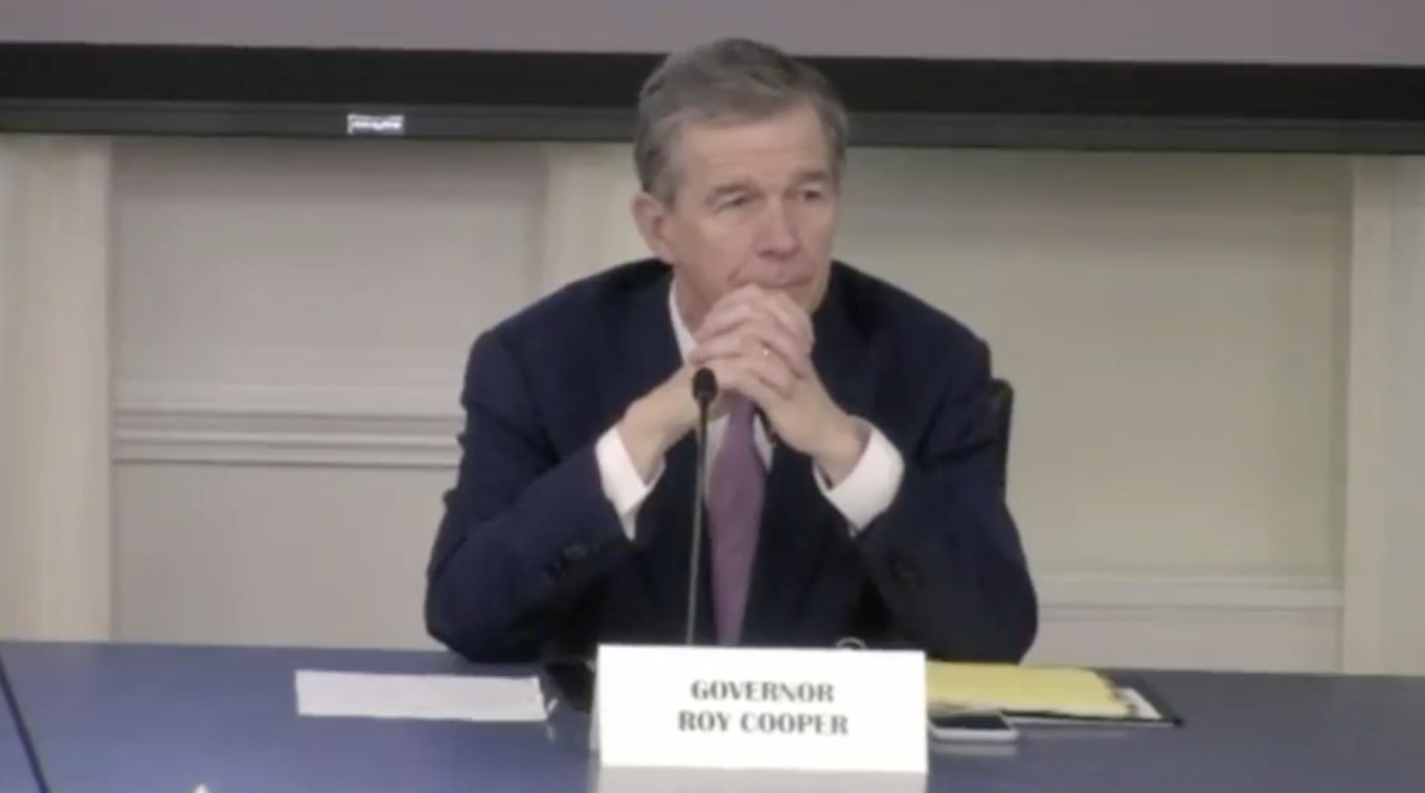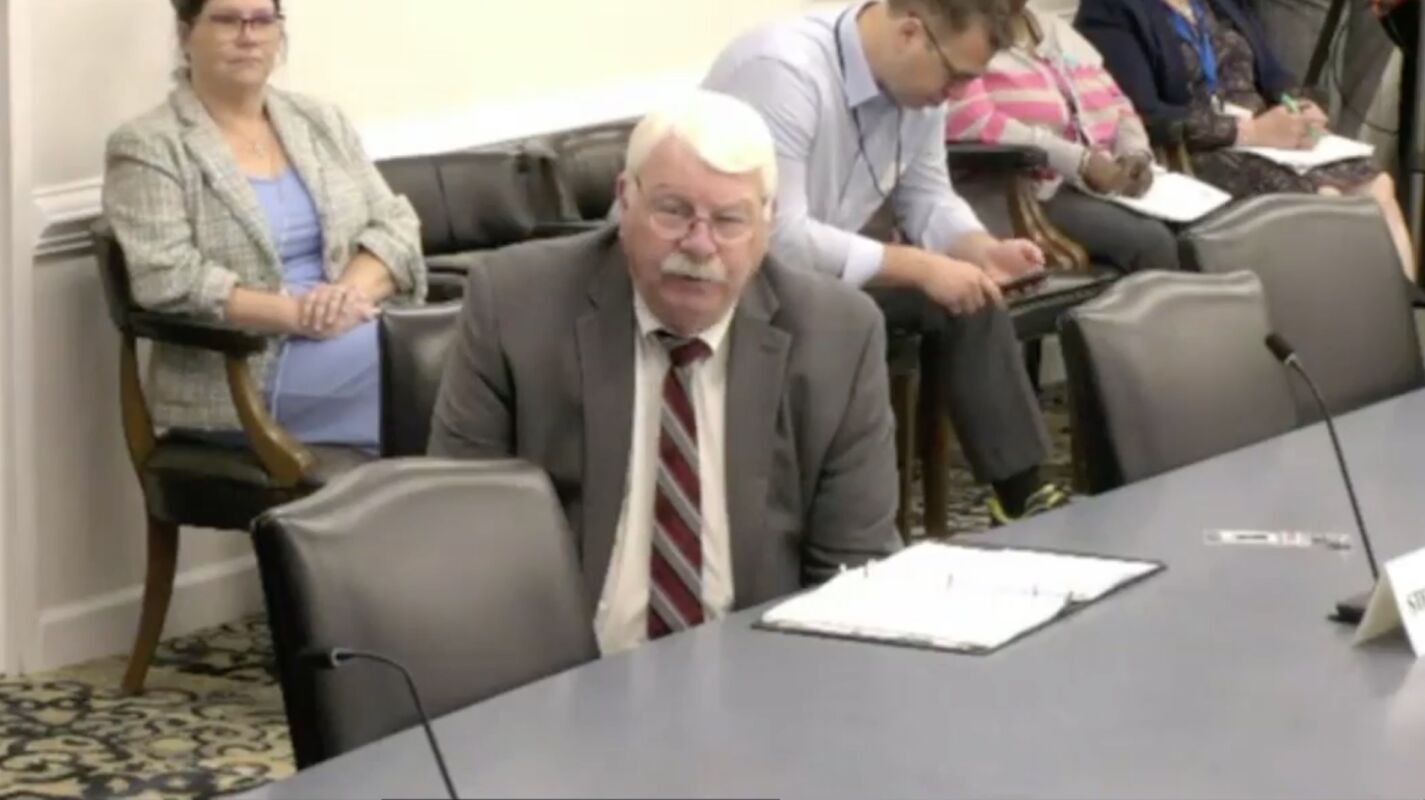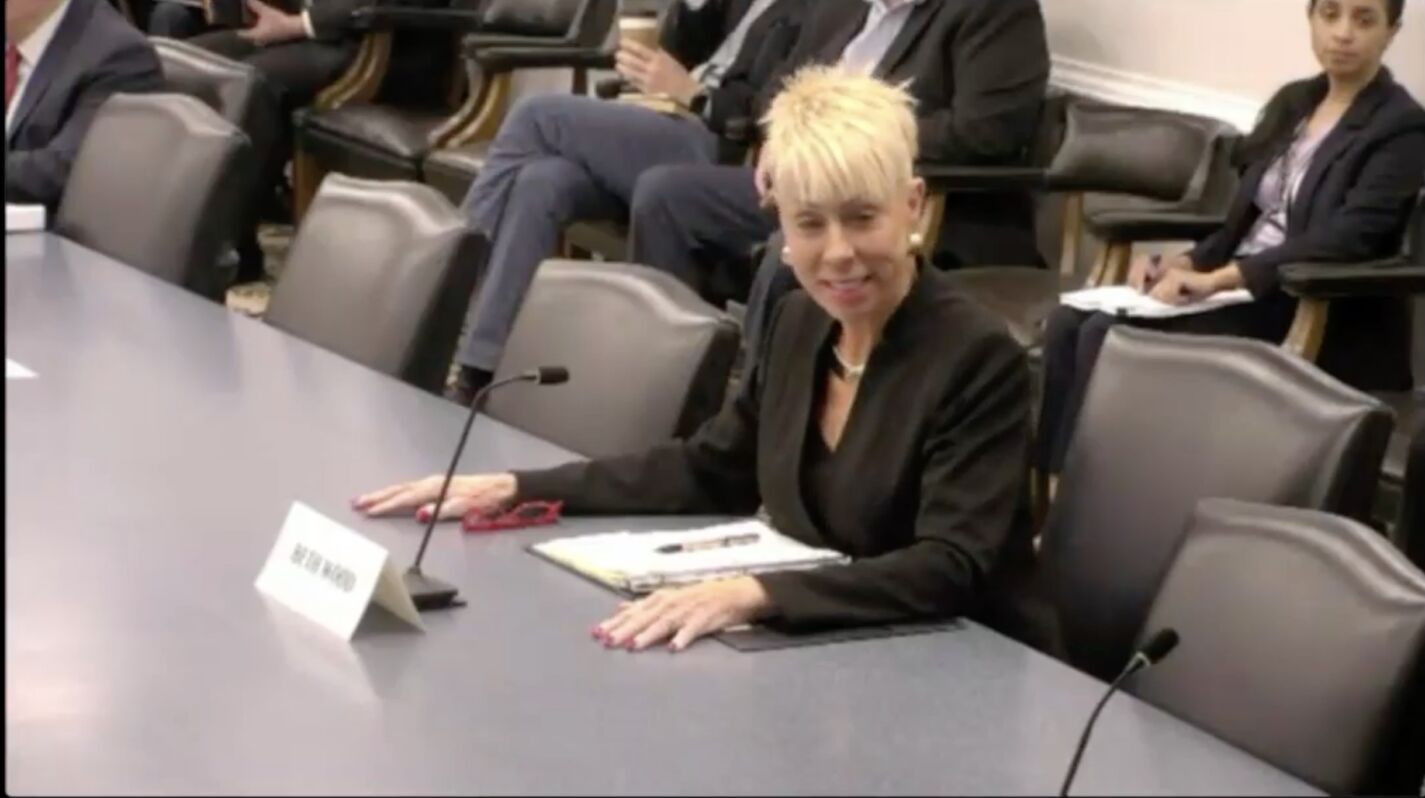- The most recovery they've seen is in middle and high school math, with the least recovery in middle school reading.
- Ag Commissioner Steve Troxler said the state has been battling 90 wildfires in the mountains over the weekend.
April’s Council of State meeting got off to a late start Tuesday as Gov. Roy Cooper postponed it to take a call with Ukrainian President Volodymyr Zelensky and other governors across the country.
The call was organized through the bipartisan National Governors Association.
Cooper, a Democrat, said they talked about the help the American people are providing to Ukraine, including right here in North Carolina. He mentioned that troops from military bases in North Carolina have helped train Ukrainian soldiers. Doctors from Ukraine also received training at Triangle area hospitals last month and nonprofit groups from N.C. are helping refugees in Poland.

“That country is amazing in its ability to accept Ukrainian refugees,” Cooper said. “A lot of people are suffering as this brutal dictatorship attacks this democracy, and I think it’s important for Americans to stand shoulder to shoulder to make sure that we are helping Ukraine in this process so that Russia’s attacks won’t spread further in Europe and so that other dictators across the world will not be emboldened.”
According to Secretary of State Elaine Marshall, new business creations continue to thrive. Between Jan.1 and March 31, 47,173 new businesses were created, beating the previous record of 46,819 last year, and in 2021, it was 45,000. Overall, new business creations have grown 70% since 2019.
90 wildfires in NC mountains

Agriculture Commissioner Steve Troxler said the state has been battling 90 wildfires in the mountains over the weekend due to windy conditions, but a Tyrrell County fire in the eastern part of the state has been very problematic due to soil conditions that are causing the ground to burn. He said it has been almost impossible to put out and that they needed to truck in water from miles away in order to fight the fire. He advised people to be careful when burning anything this spring, especially in windy conditions.
“We rank number one in the nation in North Carolina with the interface of buildings and people and forestland, so when we get to wildfires, not only protecting the forest but also protecting buildings and lives is important,” said Troxler. “The spring is a very busy time for us, so we ask the public to help us out and keep the number of these wildfires down.”
State Insurance Commissioner and Fire Marshal Mike Causey thanked Troxler for mentioning the wildfires and thanked Forest Service workers and all the volunteer fire departments for assisting in fighting the fires in conjunction with the fire service.
Progress in post-pandemic learning recovery
Superintendent of Public Instruction Catherine Truitt discussed the learning loss report that the Office of Learning Recovery has compiled.
The office, funded with federal COVID relief money, was formed to track and assist school districts with the $6.5 billion of federal COVID relief funds they were given throughout the pandemic. Truitt said the report took every single test that a student has ever taken in the state of North Carolina and built out a predictive analytics model that showed how the student should have performed on their testing had there not been a pandemic with school closures.
They compared that to how they actually did on testing coming out of the pandemic and converted those effect sizes to the number of months that students would need extra instruction to recover.
“That data, which by the way, was the first report of its kind in the whole country that was able to hand district leaders, principals, and teachers learning loss data specific to students, not just a sample but for all students in the state has led to our public schools and our teachers being able to pinpoint where learning loss is so that districts could target their ESSER spending to where the most learning loss was,” Truitt said.
“As a result, I’m really happy to let everyone know that we’re going to be releasing a sister report to this original report that will show that we have seen incredible gains, a bounce back if you will, in almost every single grade in every single subject.”
Truitt said the most recovery they have seen is in middle and high school math, with the least recovery in middle school reading. The state board will hear data Wednesday that shows significant gains that kindergarten through third graders are making in early literacy. Truitt said the school districts and teachers are owed a debt of gratitude for the amount of work that they have done coming out of the pandemic to not just get kids caught up but get them beyond the impact of the pandemic, especially with third-grade reading data. The third-graders were the children who missed all of kindergarten and a lot of the first grade during the pandemic.

State Auditor Beth Wood said her office just finished and turned in to the federal government by the March 31 deadline its audit of $21 billion in federal grant monies which are spread out over different programs ranging from Medicaid, food stamps, Department of Transportation, and schools.